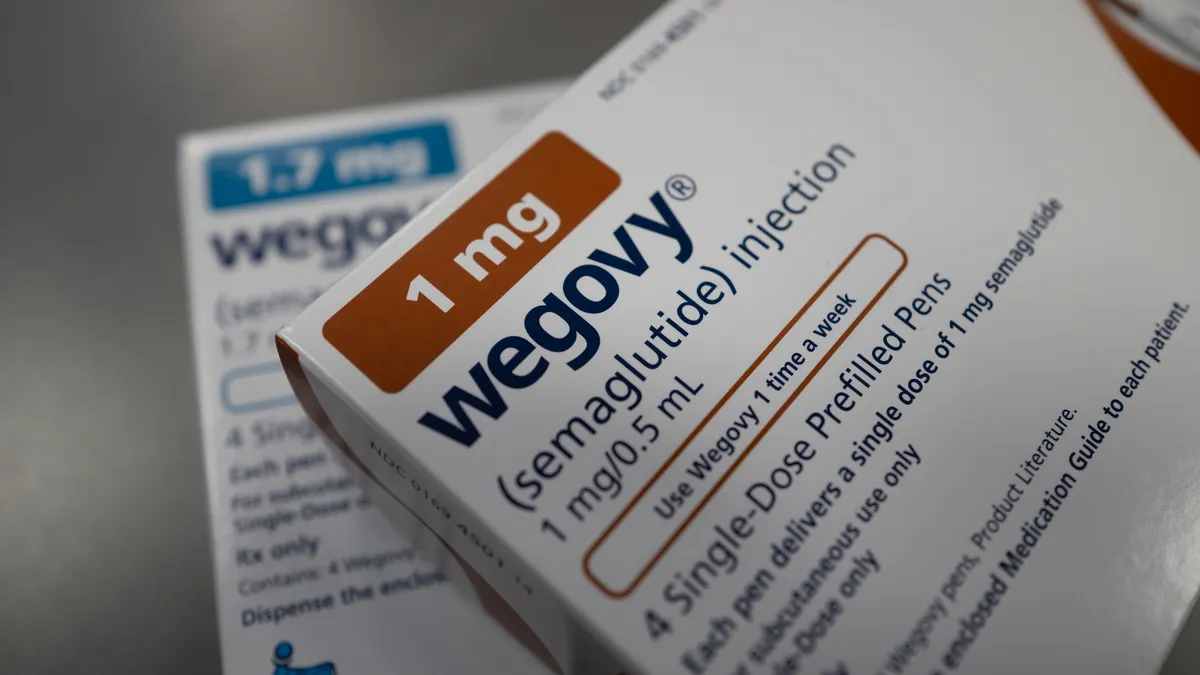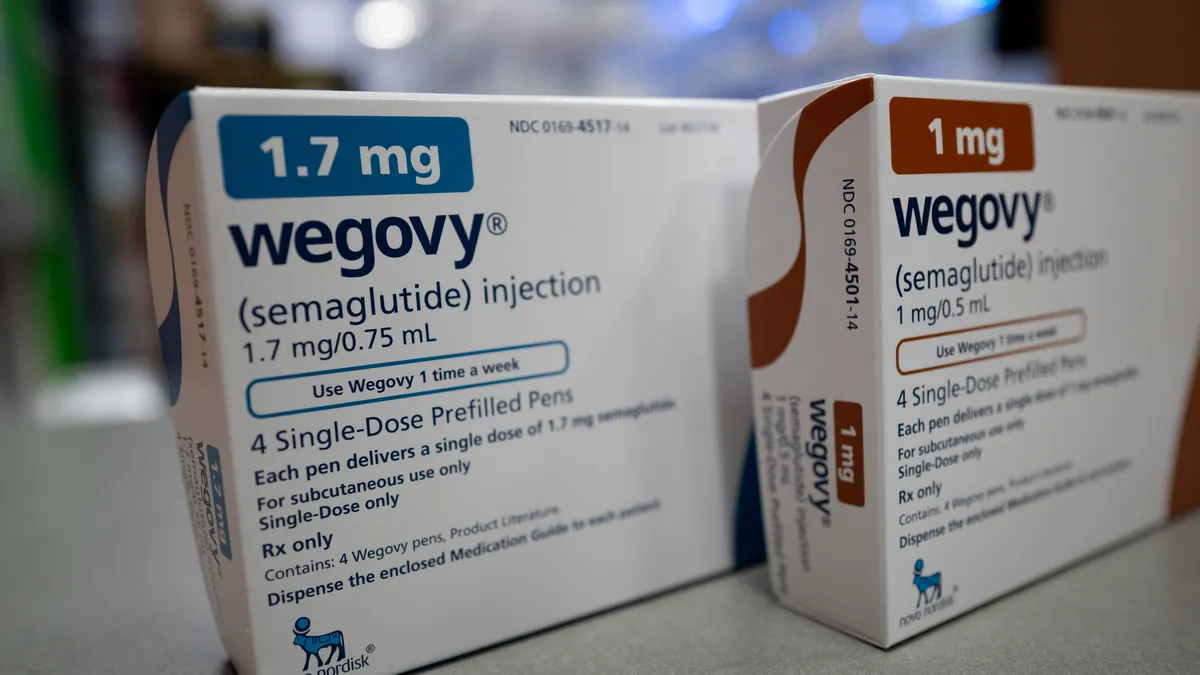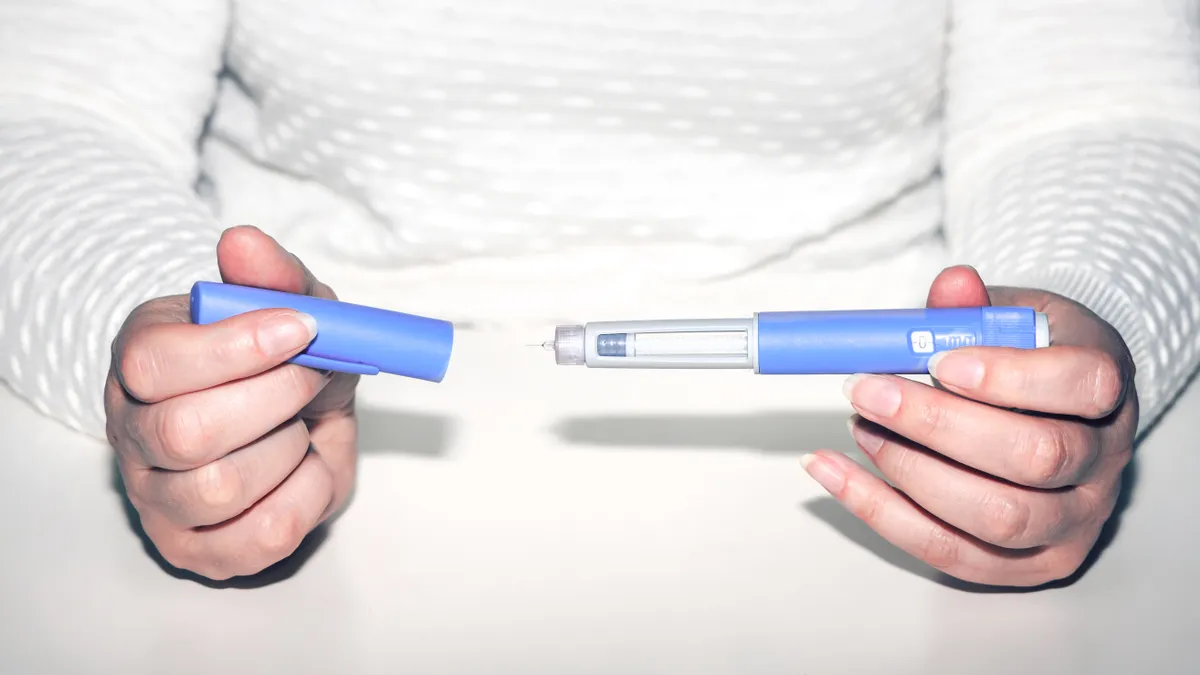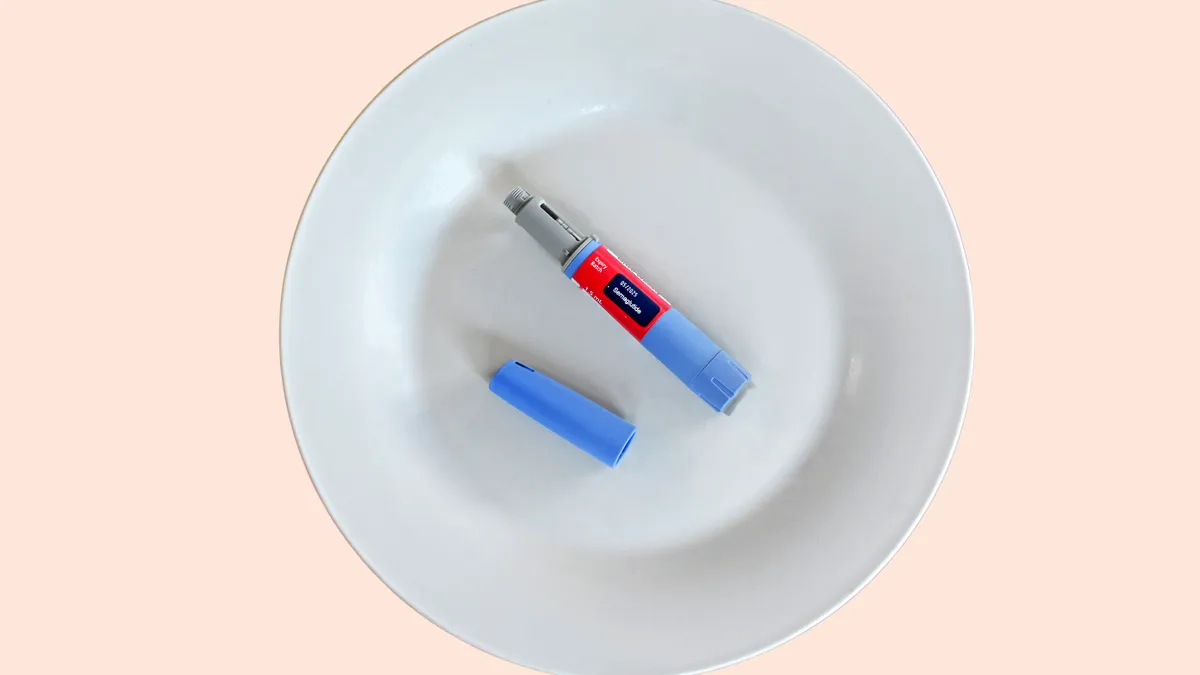Dive Brief:
- An experimental weight loss pill from Viking Therapeutics helped people with obesity lose up to 12% of their body weight over 13 weeks in a Phase 2 trial, beating a placebo by 11 percentage points, the company said Tuesday. The pill, called VK2735, also helped a higher proportion of study volunteers lose at least 5% and 10% of their total body weight, Viking said.
- However, a fifth of the people who got VK2735 stopped treatment due to adverse events, versus 13% of placebo recipients. More than one-third of the volunteers receiving one of the two highest doses of VK2735 experienced vomiting. Other gastrointestinal side effects were common as well, though Viking described them as mostly mild to moderate.
- VK2735 is an oral medicine that, like Eli Lilly’s injectable drug Zepbound, stimulates the gut hormones GIP and GLP-1. If successful in testing and eventually approved, it may have to compete with oral weight loss treatments from Lilly and Novo Nordisk. Lilly’s drug just completed Phase 3 testing, while Novo’s is being reviewed by U.S. regulators. Viking shares fell as much as 44% in early trading Tuesday.
Dive Insight:
Viking’s trial was one of the more closely watched studies in obesity drug research, as the company is among the leaders in a chase to develop an oral alternative to the popular injectable medicines Wegovy and Zepbound.
Ahead of the results, Wall Street analysts and Viking executives had predicted that VK2735 would be a competitive drug if it could spur 8% weight loss after 13 weeks. The top three doses of VK2735 — 60 milligram, 90 mg and 120 mg daily pills — achieved that goal. Analysts had also noted that VK2735 might have an advantage over its competitors by enabling people to build up to higher doses more quickly than with other medicines.
The weight loss results Viking reported place VK2735 “among the upper echelon” of oral obesity medicines, wrote Stifel analyst Annabel Samimy, in a Tuesday note to clients.
However, the rates of those who stopped treatment early — 28%, 25% and 38%, respectively, of those in the 60 mg, 90 mg and 120 mg groups — concerned investors to the point that Viking’s market value was nearly cut in half on Tuesday. By comparison, 18% of placebo recipients discontinued therapy early.
In a separate note, William Blair analyst Andy Hsieh called the stock selloff “extreme and unwarranted.” Viking’s lower, 30 mg dose, which could be a “maintenance dose” in a pivotal trial, had a “placebo-like profile,” he wrote. It’s unlikely Viking would advance the 90 mg or 120 mg doses into further testing, he added.
Relatedly, the trial also included volunteers who ramped up to the 90 mg dose and then dropped down to the 30 mg dose after six weeks. Weight loss in that group increased slightly, from 8% to 9%, after the dose reduction.
That finding “provides an encouraging signal that supports our belief that transitioning patients from higher doses, injectable or oral, to low oral doses represents a promising approach to weight maintenance therapy,” said CEO Brian Lian, in a statement.
Viking also has an injectable version of VK2735 in late-stage testing. Results are expected in 2027, according to a federal database.

















































